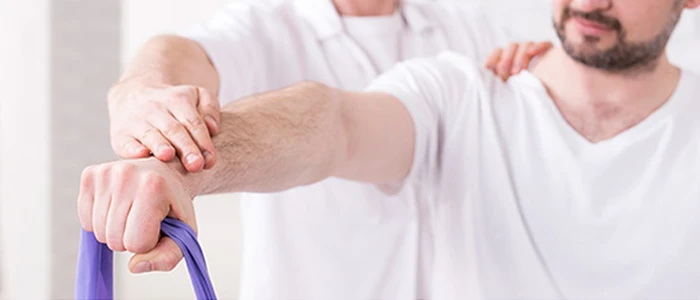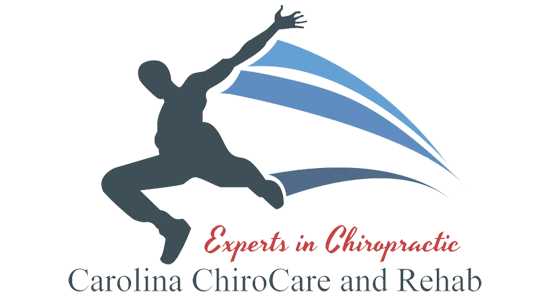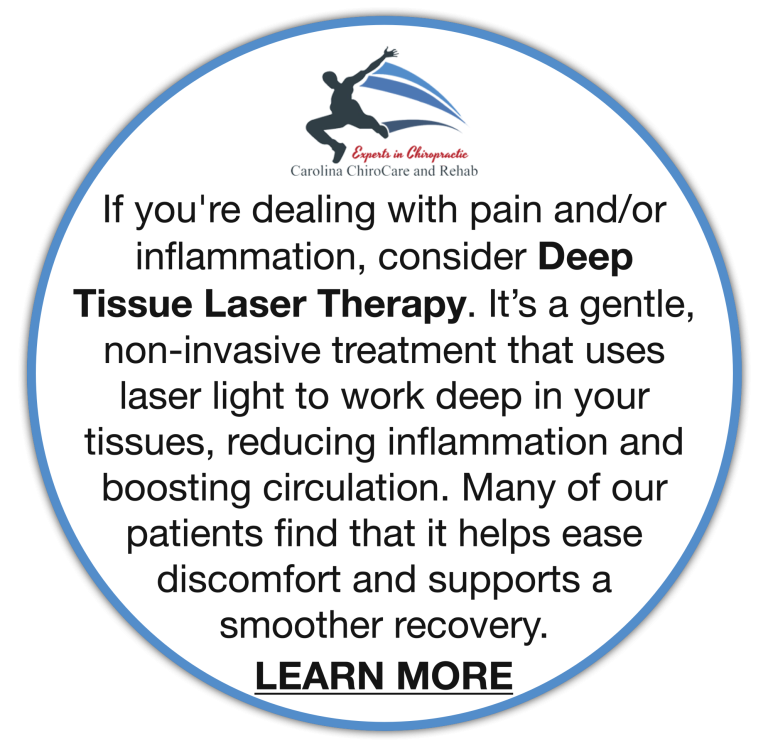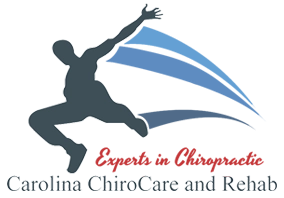Which Chiropractic Therapy Is Right For You?

Chiropractors use a variety of therapeutic services to address their patient's conditions. While many are familiar with spinal adjustments for the neck, mid and low back, and pelvis, there are a variety of other therapies and adjustments that chiropractors utilize to treat their patients.
So, how does your chiropractor choose which therapies to treat you with?
Pain in the shoulders, knees hands elbows?
Did you know that chiropractors can adjust/manipulate the joints in the extremities like shoulders, wrists, elbows, knees, and feet? These extremity joints can misalign, causing pain and dysfunction.
Conditions such as
- Carpal and tarsal tunnel syndrome
- Golfer and tennis elbow
- Adhesive capsulitis in the shoulder
These conditions often respond well to gentle joint adjustments/mobilizations in the extremities, especially when combined with other therapy modalities like stretching, manual therapy, and targeted strengthening exercises.
Electrical muscle stimulation
Electrical muscle stimulation has popular use in physical therapy and chiropractic offices to help manage pain. It has been used since the 1960s. It involves placing small pads around the area of injury or area of pain. Electrical impulses are put into the body through the pads for around 10 to 15 minutes. The electricity has an effect on the body's experiencing pain.
It is thought that electrical muscle stimulation has an effect on the Gate Control Theory in which pain signals are sent and received in the brain via nervous stimulation.
Electrical stimulation is thought to block the way the body experiences pain. It's also thought that electrical muscle stimulation causes the brain to release chemicals which are natural painkillers called enkephalins and endorphins.
Your chiropractor may choose to use electrical muscle stimulation for both acute and chronic conditions such as
- Whiplash
- Sprains and strains
- Muscle tension
- Arthritis
- Chronic spine pain
- Degenerative disc disease
- Bulging or herniated discs
Mechanical traction
Mechanical traction involves the use of a machine to spread apart/stretch the vertebral spine joints either in the cervical spine, thoracic spine, or lumbopelvic spine.
Often times there is radiating pain from irritated spinal nerves that accompany neck and low back pain. This irritation around the vertebral joints can be treated using mechanical traction. Mechanical traction stretches the neck, head, lower back, and pelvis while the patient lies on their back or stomach. This pulling or stretching expands and decompresses the space between the vertebrae where the nerves come out of while stretching the ligaments, muscles, and fascia around the spinal vertebrae. There are very few side effects with mechanical traction.
Your chiropractor may use mechanical/intersegmental traction for:
- Pinched nerves
- Degenerative disc disease
- Bulging or herniated disc
- Nerve pain
- To provide stretching and flexibility after an injury or too stiff joints
- Neck pain
- Back pain
- Arm or leg numbness/tingling/pain
- Sciatica
- Spinal stenosis
Manual therapy
Manual therapy is a hands-on therapeutic approach many health care practitioners use on muscles, joints, ligaments, fascia, muscle spasms, muscle tension, and joint dysfunction. It is used to treat joints that do not have proper mobility and range of motion. Manual therapy is also used to treat post-surgical adhesions or chronic pain from arthritis.
Whether your chiropractor is treating a new injury or an older injury like whiplash, arthritis, or degenerative disc disease, manual therapy involves stretching and mobilizing soft tissues to increase circulation, flexibility, tone, and strength.
Conditions that your chiropractor may recommend manual therapy for include - Muscle spasms
- Stiff, sore spine or extremity joints that lack mobility
- Tension or knots in the back or muscles
- Pinched nerves and muscle spasms
- New injuries such as whiplash that require stretching and mobilization of the spinal joints to heal properly
- Shoulder stiffness and pain
- Myalgia (muscle pain)
- Fibromyalgia
- Overuse injuries such as carpal tunnel syndrome or golfer's/tennis elbow
Targeted Therapeutic Exercises and Stretches
Targeted Therapeutic Exercises and Stretches are commonly recommended in chiropractic offices to treat and manage spinal and extremity conditions. Your Chiropractor may find weak or tight muscles which are the root cause of your condition(s). Often times imbalances in certain muscles that are too tight or week need to be properly addressed.
For instance, tight hamstring muscles that attach to the lower part of the pelvis, when not properly stretched will pull on the upper part of the pelvis and lumbar spine joints causing low back pain.
Poor posture in the upper back or thoracic spine will lead to rounding of the shoulders which in turn juts out the chin and head, which can lead to chronic neck pain and headaches. This is common among office workers who sit at their work computers all day.
These are two common examples of conditions that require therapeutic exercises/stretches. The goal is to strengthen weak, inactivated muscles while stretching tight hypertonic muscles in the extremities and spine.
Therapeutic exercises are currently thought to have some of the most beneficial effects on pain management and injury recovery.
It's also important that patients are put on a home care exercise stretching program to best facilitate their recovery and long-term outcome.
Ultrasound therapy
Ultrasound therapy is a medical treatment used in chiropractic offices to promote tissue healing, injury recovery, and manage pain. Ultrasound therapy uses ultrasonic vibrations that penetrate deep into the spinal or extremity joints, causing heating of the underlying soft tissues and fascia. Ultrasound therapy is used to treat
- Joint pain
- Arthritis
- Muscle pain
- Sprains and Strains
- Back pain
- Neck pain
- Headaches
- Whiplash
- Degenerative disc disease
- Carpal tunnel syndrome
- Tendinitis
- Overuse injuries such as Golfers and tennis elbow
In health,
Dr. Jeffrey Gerdes D.C.
OFFICE HOURS
Monday
9:00am - 6:00pm
Tuesday
9:00am - 6:00pm
Wednesday
9:00am - 6:00pm
Thursday
9:00am - 6:00pm
Friday
10:00am - 4:00pm
Saturday & Sunday
Closed
Carolina ChiroCare and Rehab




